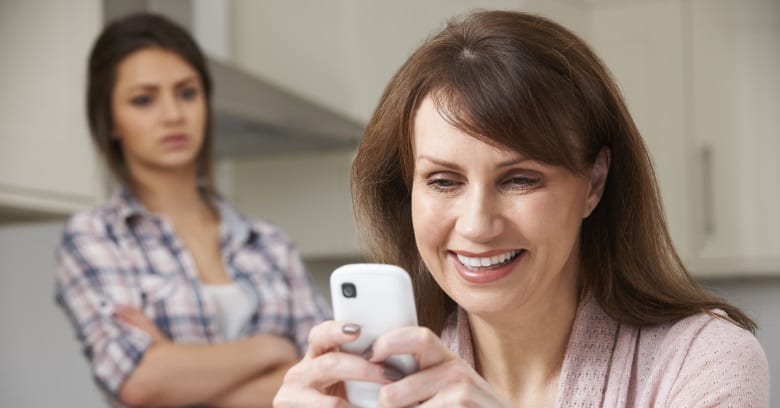Some parents may shrug off the shaming stories – and the professionalised sharing of family vloggers such as the Shaytards, the Brataleys, the Ballingers – as beyond the range of their own moderate social media activity. But listen to the children in the Kingsford classroom and it becomes clear how many degrees there are of shame. To these teenagers, even small instances of sharing can be divisive. When I ask if anyone has experienced being overshared themselves, hands shoot up, but the answers are a long way from the public shaming that normally grabs headlines. They are exactly the sort of infringements that many parents will commit without a second thought.
“I was eating a Subway. Chicken teriyaki. Eating that and my mum just took the picture and posted it on Facebook,” one pupil says.
“I was with my aunt in the park. I was wearing my scarf but I didn’t have a pin. It flew off and my hair was all raggedy, sticking up all over the place. My auntie put it on Facebook. I was so embarrassed I was crying. I asked her to take it down but she said, ‘No, it looks cute.’”
“My uncle posted when his daughter had diarrhoea: ‘Pray for her.’”
One girl, 14, raises her hand. “Parents love to post things about you, personal information that you might not like,” she says. “Which kind of affects your relationship with them. Now, when you want to speak to them about certain things, you’re worried they might post it.”
Her classmate Erin stands up. Her team supports the motion on the whiteboard – that parents should be banned from posting – and they have an idea. “We want to pass a law that requires open forms of social media to put a consent button on their pages, so a child can report whether their parents have posted about them without consent,” she declares. “If parents refuse to cooperate, they will be fined the amount of £1,000.”
These suggestions may sound excessive and unfeasible; in fact they lie squarely within the recommendations made by a number of adults campaigning in this field. Erin’s idea of a penalty, for instance, echoes the attempts by a Democratic state representative in Illinois, La Shawn K Ford, to make the shaming of children on social networking sites an offence. Offending parents should face a penalty, he has argued, which, just like Erin’s, would be a fine paid directly to the child. As for the apparently far-fetched idea of a “consent button”, this sounds uncannily similar to the “delete button” proposed by 5Rights, the campaign steered by the peer and film-maker Beeban Kidron to protect and empower children online.
More generally, the debaters’ irritation chimes with research published in March by a team at the University of Michigan. After interviewing 249 parent-children pairings across 40 US states, the researchers found that children were more than twice as likely as parents to say that adults should not post information online about them without permission. Would the Kingsford children concur? Class E11 rings with shouts of, “Yes!”
“It ain’t going to happen,” their teacher, Miss Alimi, says.
“Miss!” one of her students cries. “There’s a thing called wishful thinking.”





![[Video] How to get rid of bed bugs in Toronto](https://www.thehowtozone.com/wp-content/uploads/2019/10/maxresdefault-2-100x70.jpg)


